What Is the Interagency Gender Working Group (IGWG)?
The IGWG, established in 1997, is a network of multiple nongovernmental organizations, the United States Agency for International Development (USAID), cooperating agencies, and the Bureau for Global Health of USAID.
We highlight evidence-based approaches, including best practices from the field, that promote gender equity within global health programs to:
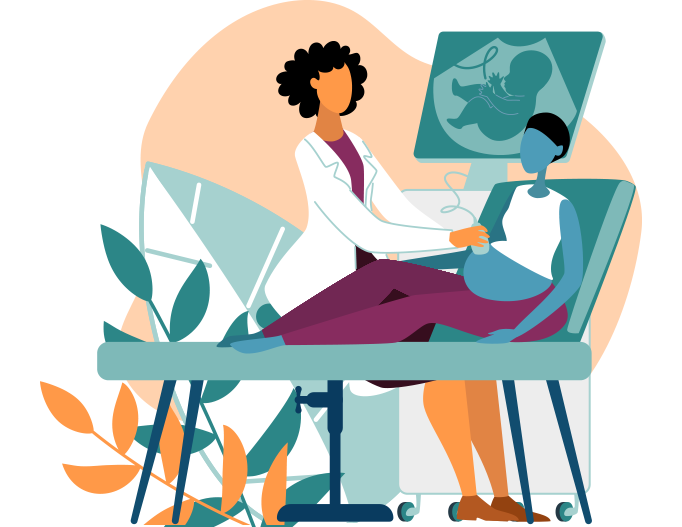 Improve outcomes for family planning and reproductive health, and maternal and child health and nutrition.
Improve outcomes for family planning and reproductive health, and maternal and child health and nutrition. 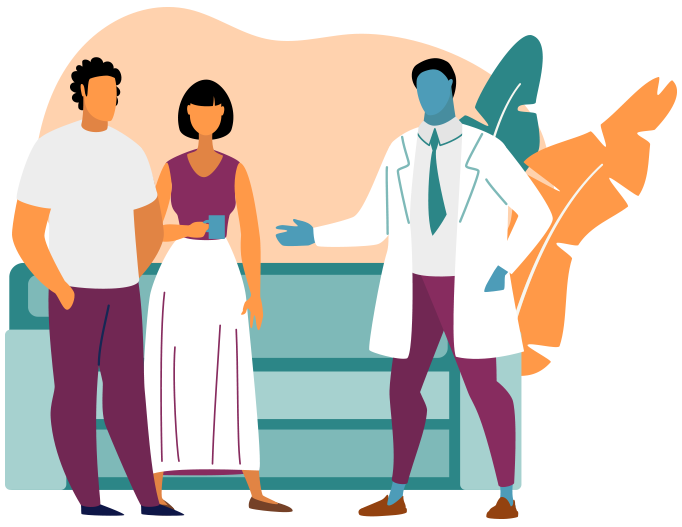 Advocate for HIV/AIDS awareness and prevention.
Advocate for HIV/AIDS awareness and prevention. 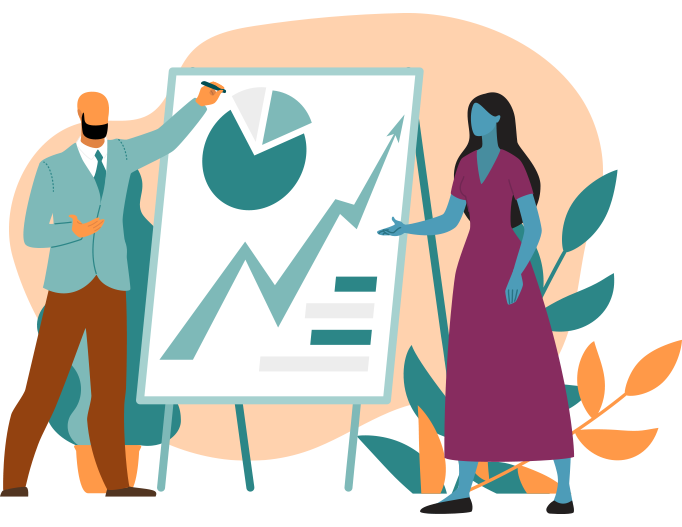 Foster gender equitable sustainable development.
Foster gender equitable sustainable development. Our priority areas focus on:
Power dynamics heavily impact one’s ability to make healthy choices, especially for women’s and girls’ reproductive health and family planning. The IGWG focuses on evidence-based approaches to achieving gender equality across the global health sector. Why all sectors? Because to achieve gender equality, we need every sector—political, legal, financial, agricultural—to actively pursue equality and inclusion.
GBV is a human rights violation; a public health challenge; a barrier to civic, social, political, and economic participation; and it costs society billions of dollars each year. Our work in this area informs the health and education systems’ responses to GBV, explores the social norms that contribute to it, discusses academic and programmatic research about promising approaches to prevent and respond to it, and more. Our Gender-Based Violence Task Force hosts events and provides resources for those working in this area.
Many global health programs still fail to adequately address the reality that men’s (and society’s) beliefs about masculinity and men’s power can negatively impact women’s ability to make healthy choices and see positive health outcomes. The IGWG promotes redefining masculinity and the role of men in more constructive ways—as consumers of health care, supportive partners, and advocates for—and beneficiaries of—gender equality and health in their families and communities. Our Male Engagement Task Force hosts events and provides resources dedicated to this focus area, such as the Engaging Men in Reproductive Health infographic and Engaging Boys and Men in Contraception Use and Family Planning: A Slide Deck.
Half of the world’s population is under age 30, and these youth have a variety of challenges to overcome if they’re to lead healthy and productive lives. The IGWG highlights promising research and evidence-based approaches to addressing the impact of harmful gender norms on young people’s health, education, and livelihoods so that they can enjoy all of their rights without the constraints of gender inequality holding them back.
The Gender Integration Continuum
The IGWG promotes critical exploration of gender and its implications on reproductive health at every stage of the program cycle. The Gender Integration Continuum is a necessary tool to identify whether an intervention encourages gender equity to improve development outcomes, such as in reproductive health. Learn how to use this tool—and how to train others to use it—with our User’s Guide.
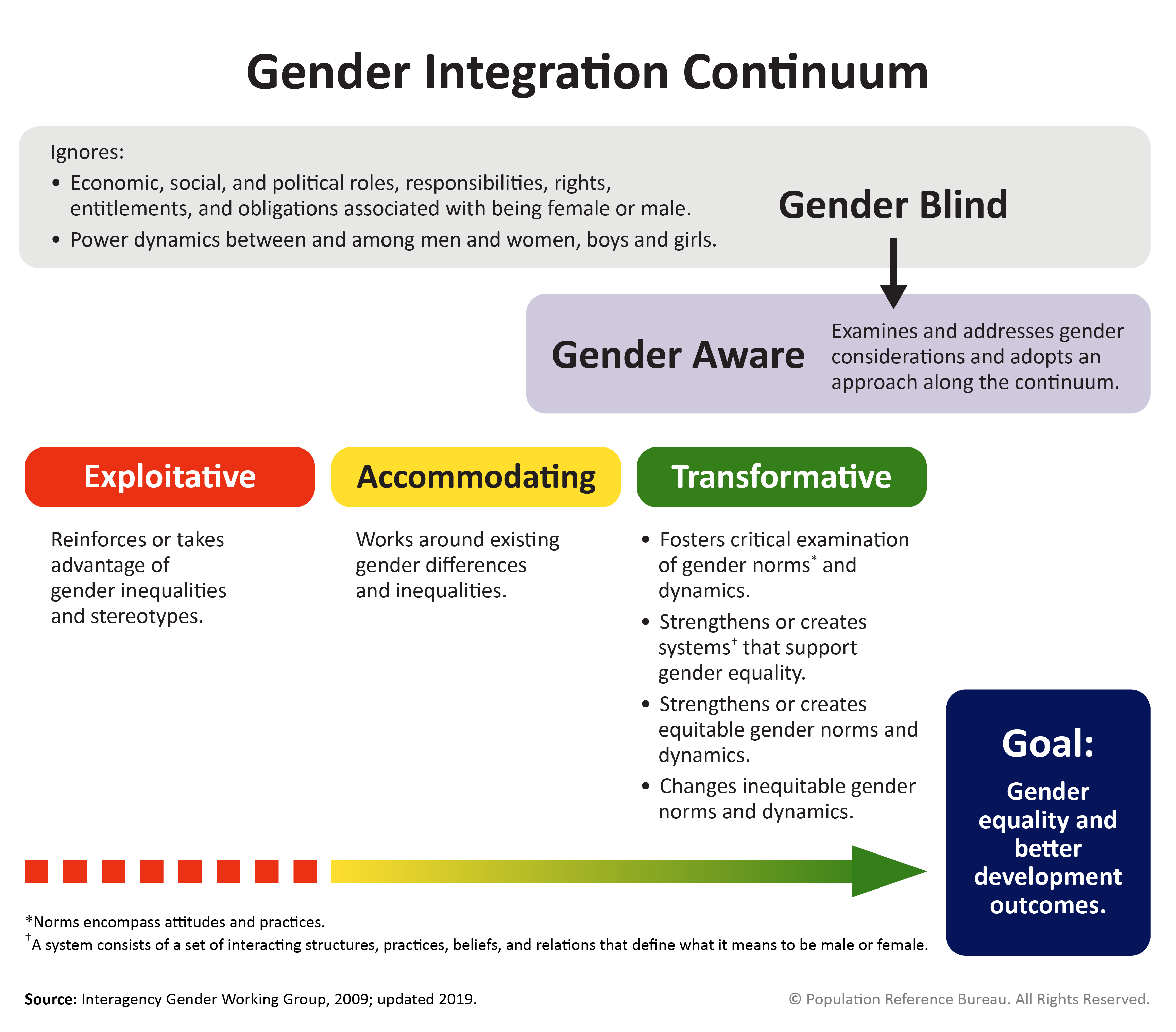
Get the Benefits of an IGWG Membership
Join a global network of more than 2,200 peers and gain the opportunity to contribute to and learn from our members, events, and resources.
Our Community of Practice is a resource hub for anyone interested in issues related to gender, gender equality, health, and development. You don’t need to be a gender expert to join! The IGWG is dedicated to all gender practitioners (experts and those new to the field)—and membership is free.
As an IGWG member, you receive the latest information on:
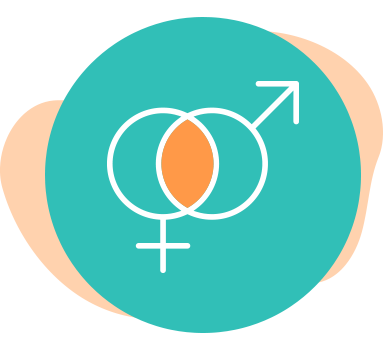 Resources and tools to learn more about integrating gender in your work.
Resources and tools to learn more about integrating gender in your work. 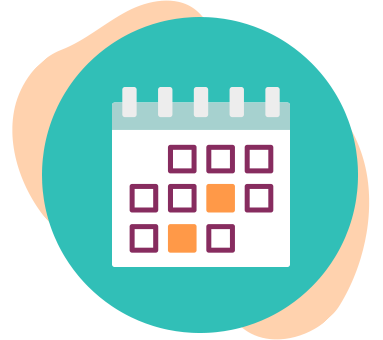 Upcoming events on topics related to gender.
Upcoming events on topics related to gender. 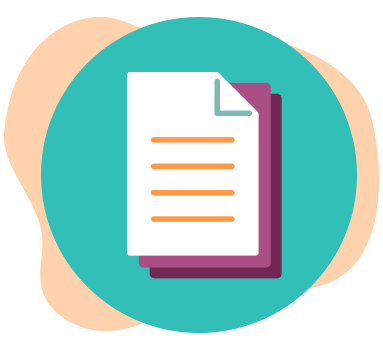 News, opportunities, and research to give you the latest information on what’s happening in the gender field.
News, opportunities, and research to give you the latest information on what’s happening in the gender field. Want to become involved?
We always look for ways to diversify our membership base, include more perspectives, and improve the ways our members engage with one another. We also co-convene several task forces that specialize in our focus areas.
The IGWG is managed under the PROPEL Youth and Gender project, funded by USAID, in close collaboration with gender champions.


